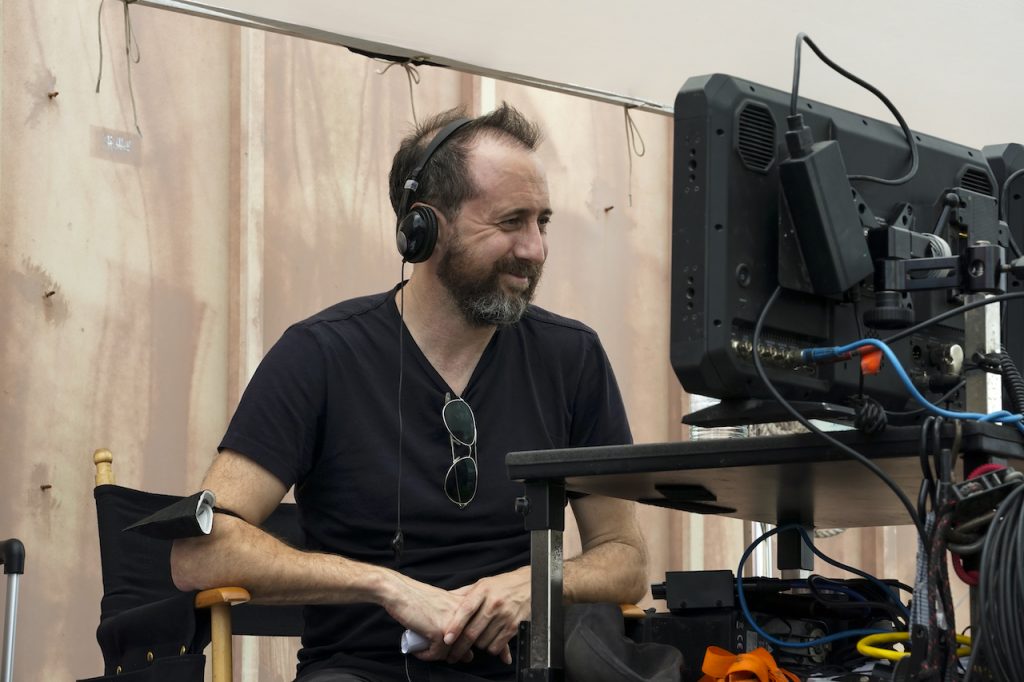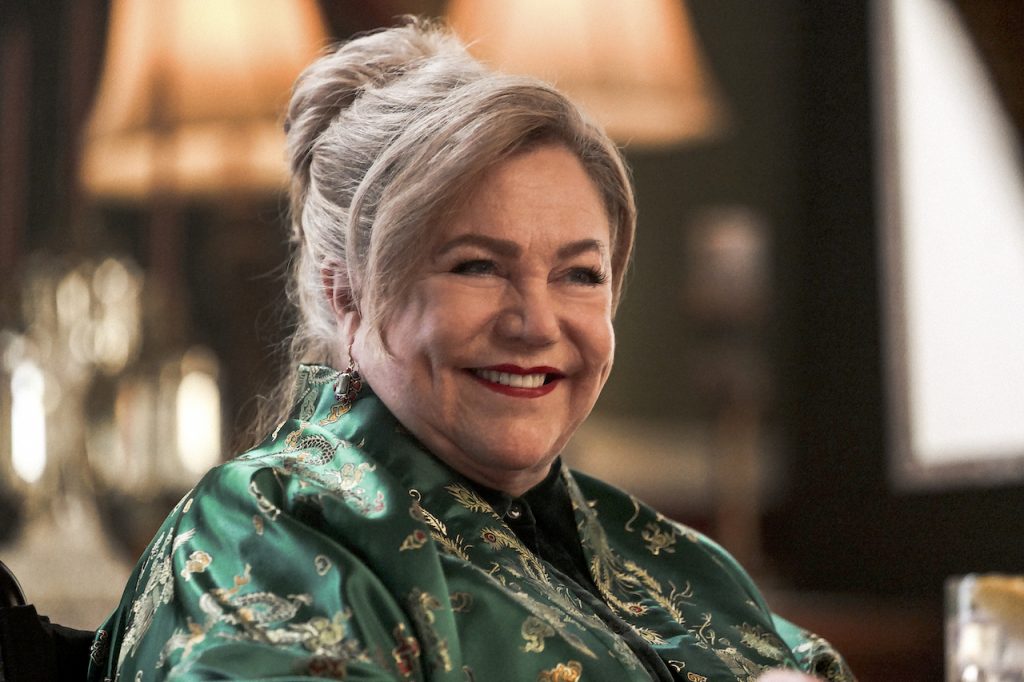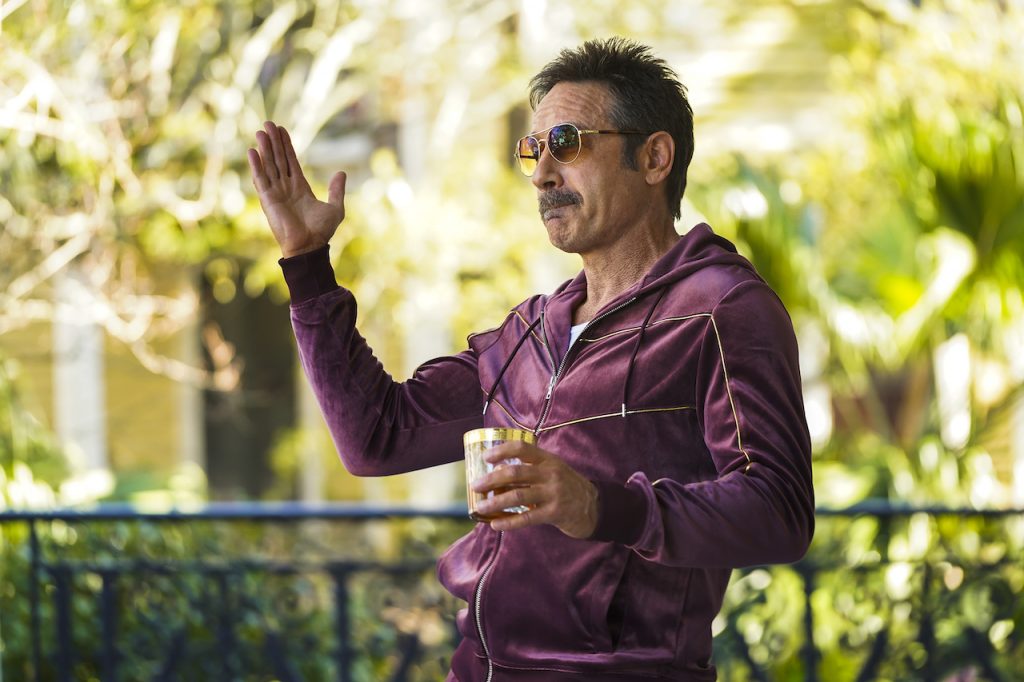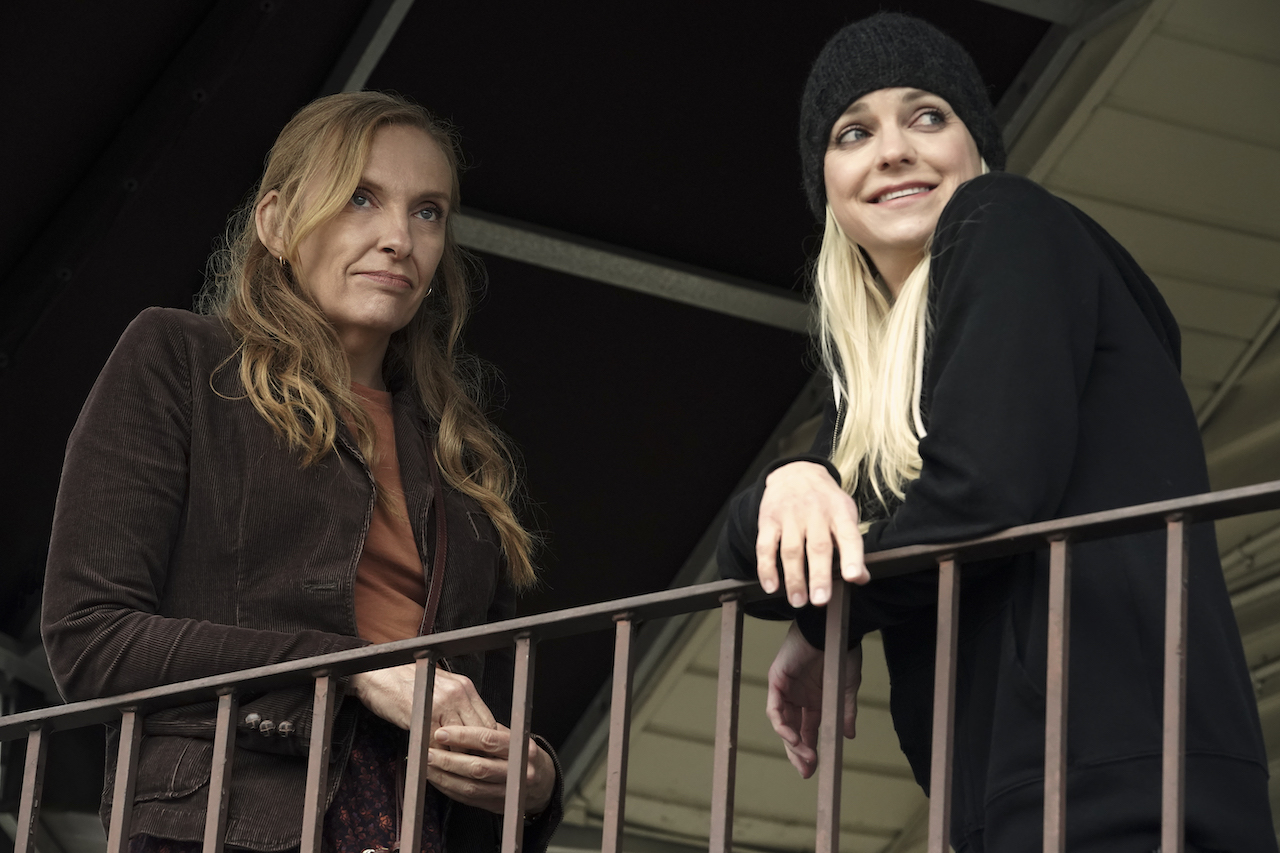There are mild spoilers in this interview.
“The Estate started as a TV pilot that I wrote for HBO. I was working with Pretty Matches, Sarah Jessica Parker’s production company, and we read an article on how many Southern mansions were left behind and causing problems within families over disputed inheritance,” said writer/ director Dean Craig (Death At A Funeral, Hit The Road). Families squabbling over an inheritance is a frequent occurrence which lends itself to ongoing conflict, especially if the wealth owner is still alive and hasn’t finalized her will. Craig felt that this premise could be funny by making the most of the dysfunctional family dynamics.

Dean Craig. Photo by Alyssa Moran
Craig also wanted to write a story with female central characters dealing with morally challenging behavior and breaking the boundaries of social etiquette (and taste). He tapped into the comedic talents of Anna Faris (Savanna) and Toni Collette (Macey), two sisters who want save their floundering Joe’s Triangle Café via their terminally-ill aunt Hilda (played by Kathleen Turner) after their loan application was unceremoniously declined. Splashing hot coffee on the bank manager’s face and kicking him in the “you know whats its” ensured the decision wouldn’t be reversed.
Savanna reasons they are the natural recipient of Hilda’s estate since she doesn’t have children, is estranged from her sister, and the other cousins live in different states. The plan was seemingly flawless and foolproof. All they needed to do was visit Aunt Hilda and get her to sign. Until everything changed.
Who the hell are you people? – Aunt Hilda (The Matriarch)
The writer/ director wanted to bring in a peculiar tracksuit-wearing cousin and other relatives from out of the woodwork and focus his entire story on the battle for the inheritance. None was most deserving of the inheritance, yet each thought the haul was theirs. This added even more conflict to the mix. Everyone had an equal shot at the inheritance. All they needed to do was bring Aunt Hilda a huge bouquet of flowers and reassure her how much they loved the cantankerous woman.

Kathleen Turner (Aunt Hilda) Photo by Elliot-Brasseaux
Craig pushed the envelope of taste(lessness) to see what he could get away with. He was pushed to go harder and edgier with each draft. “The Estate is essentially filled with dark humor, maybe a little bit provocative and polarizing, with an element of farce.” Dean likes the way farce escalates from a place of relative normality to a state of absurdity.
Gross out gags are difficult to quantify because they are very subjective. “You go to the red line but not cross it… maybe take a step over it and come back,” Craig said.
I don’t want to be a will hunter – Macey (The Sweetheart)
Dean Craig’ approach to his writing is that comedy and life are very different things. “They’re different worlds, so you can explore extreme bebaviors, especially bad and immoral ones.” That’s why he likes comedy because it allows you to experience things you may not or would not experience in real life.
He rationalizes this approach because “comedies have become a little bit “nice” lately. I like things to be a little bit naughty.” Dean Craig went all in with the “Oooo Errr” and “Ewww” factors. The Estate relishes its polarizing brand of comedy. Craig intentionally kept the parts that some people found funny and some didn’t.
Let’s go get rich from that dying old bitch – Savanna (The Schemer)
Macey and Savanna follow Laurel and Hardy dynamics – Macey is the neurotic, fearful, but sensible sister who always wants to do the right thing and Savanna is a loose cannon with no boundaries. “The soul of the script is the two sisters who are very different. They are the odd couple.” Despite their vast differences, their sibling love for one another keeps them lovingly bound. Savanna is doing this more for her sister. “Savanna needs it, but Macey really needs it.” This creates an underlying sweetness to The Estate despite its frequent saltiness.

Cousin Richard (David Duchovny) Photo by Elliot Brasseaux
A film like The Estate relies on both a tight script with the flexibility of funny moments on set. “David Duchovny (who plays cousin Richard) comes in with a lot of good ideas.” He’s as inappropriate as he is oblivious. And he knows what he wants without making any bones about it. He wants that Porsche damnit. Despite being somewhat dimwitted, Richard has kept in touch with Aunt Hilda over the years and it may very well pay off handsomely.
Then there’s Cousin Beatrice (Rosemary DeWitt) whose self-confidence is eclipsed by her arrogance. She’s convinced she’ll grab the loot because she believes she’s Aunt Hilda’s favourite.
I came out of the goodness of my heart – Aunt Beatrice (The Manipulator)
David Duchovny questioned whether his character Richard had enough to sink his teeth into in the early drafts. In an effort to give Richard more layers, Dean and his producer came up with the idea to make Richard attracted to his cousin. Richard is already utterly shameless and exists in his own morally-questionable universe. A genetic sexual attraction to Macey only heightened this. “Richard is totally unaware of why Macey finds this repulsive and is therefore unapologetic.” He’s immature, innocent, and self-absorbed. And loving it.
Call me Dick. I like Dick now – Cousin Richard (The Dick)
Aunt Hilda takes great joy in watching her family go to war over her inheritance. “She was deliberately created as a difficult and intimidating character. I didn’t want her to feel vulnerable and have people feel too sorry for her.” If Hilda was too sympathetic, it would be difficult to root for any other character. Aunt Hilda doesn’t suffer fools, but she’s surrounded by them. The audience is left wondering whether she’s aware why her extended family is being so amiable, whether she’s enjoying the game, or whether she’s truly trying to decide who is most worthy of her bounty.
Aunt Hilda is the nucleus of the situation. Her inheritance is the prize. Her scheming family are satellites orbiting around her. “Every character wants to win her over to get into the will. She’s the trophy.”
A comedy movie cannot settle on being a gag machine alone. It needs to ground its characters and give them some dimension.
The screenwriter has grounded his characters with relatable themes. “I’m exploring extreme behavior, money, and equality. Money is a driving force for all the characters.” In fact, Macey stated how much humanity people sacrifice to get money in an interaction with Richard. People ignore things of real value because they believe that money will bring them true happiness.
The Estate isn’t entirely about greed. You don’t really need that Porsche, Richard. It also examines themes of survival. “Greed is what leads to the inequality that leads to people needing money to survive.”
A key moment in the movie is a touching exchange between Macey and Savanna on the porch. “There are a lot of emotions. Savanna’s being really honest about who she is, how she sees her sister, and why getting in Hilda’s will is important to her.”
There’s an ambiguity to the finale so audiences will have to imagine how things may pan post end credits. “There’s a moment of awakening for Macey when she divulges her true feelings to the family.”
Dean Craig didn’t want the sentimental redemption that is found in many other films. There isn’t a transformational arc where the characters acknowledge their flaws and change their poor behavior. “I don’t think that’s real.” The arcs were more realistic in that the characters became “less bad.”
